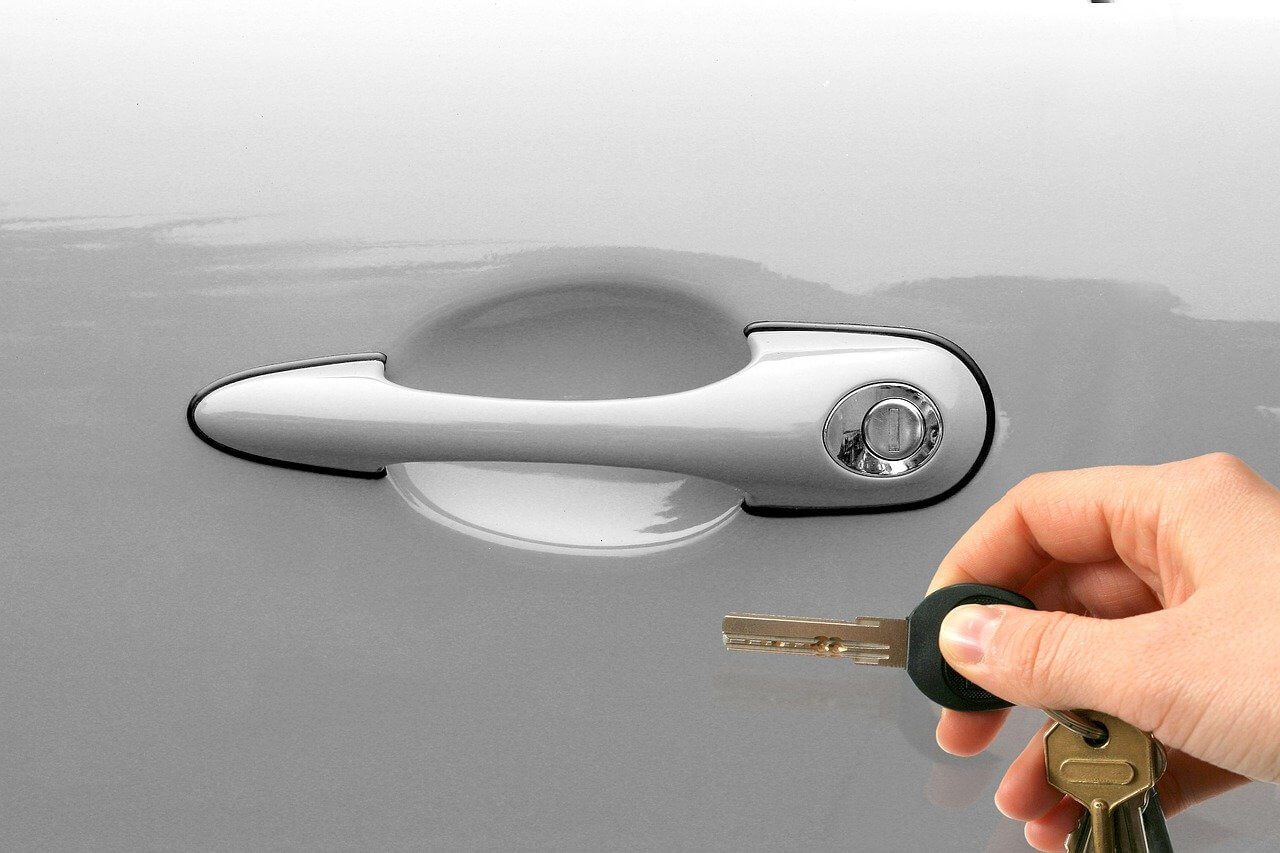Leasing cars for personal use won’t automatically guarantee you tax deductions on the expenses, however, if you drive the car for business purposes, you may be able to write off some of the costs. Miles driven to run your business or carry out your work are usually deductible. Mileage from home to work does not count as a deduction as the IRS considers this a commute.
This article discusses car lease deduction for independent contractors who use their personal vehicles for business purposes. Read on to see if this applies to your situation, especially if you are deciding between buying or leasing a car to use for your business.
Note: if you want to discover all the deductions you qualify for, try Bonsai Tax. Our software will scan your bank/credit card statements to discover all the potential tax deductions you can claim. In fact, users typically save $5,600 from their tax bill with our app. Try a 7-day free trial today.
Can i write off my car lease as a business expense?
Owned or leased, a personal vehicle used for work entitles freelancers to certain deductions. In fact, a sizable car lease can lead to a significant business deduction.

Who qualifies to write off a car lease as a business expense?
If you are an independent contractor / sole proprietor freelancer / any other "non-salaried 1099 worker" and you use an owned or leased vehicle for business purposes in addition to personal use, you likely qualify for a car lease tax deduction.
How to write off car expenses as business tax deductions
When deducting general car expenses, business owners have two options: the standard mileage rate method and the actual expense method (also known as "actual cost method"). Only the latter allows for car lease payment deductions.
Tax benefits of leasing a car for your business
How leasing a car can reduce your taxable income
Leasing a car for your business allows you to deduct lease payments as a business expense, reducing your taxable income. The IRS permits you to write off the portion of your monthly lease payment that corresponds to business use. For example, if you use the vehicle 75% for work, you can deduct 75% of your lease payments.
In 2024, the IRS also limits the amount you can deduct based on the vehicle’s value and business use percentage. It’s important to keep detailed mileage logs and receipts to substantiate your deduction. Using tools like MileIQ or Everlance can simplify tracking your business miles accurately.
To maximize your tax benefit, allocate lease payments carefully between personal and business use. This approach lowers your taxable income and can improve cash flow, especially for freelancers and small business owners who rely on vehicles for client visits or deliveries.
Additional deductions and limits to consider when leasing
Besides lease payments, you can deduct other car-related expenses proportional to business use, such as:
- Fuel
- Maintenance
- Insurance
However, the IRS imposes a "lease inclusion amount" for luxury vehicles, which reduces your deductible lease expense if the car’s value exceeds certain thresholds.
For example, in 2024, if your leased vehicle’s fair market value is over $60,000, you must reduce your lease deduction by an inclusion amount published annually by the IRS. This rule prevents high-value car leases from generating excessive tax benefits.
Understanding these limits ensures you don’t overstate your deductions and risk an audit. Consulting with a tax professional or using tax software like TurboTax Business can help you navigate these rules and claim the correct amounts.
How to document and report your leased vehicle expenses
Proper documentation is essential to claim tax benefits on a leased vehicle. Maintain a mileage log that records the date, purpose, and miles driven for each business trip. The IRS requires this to verify the business use percentage of your car.
Additionally, keep all lease agreements, payment receipts, and records of related expenses like gas and repairs. When filing your 2024 taxes, report your deductions on IRS Form 1040 Schedule C if you’re a sole proprietor, or the appropriate business tax form for your entity.
Using accounting software such as QuickBooks Self-Employed, Bonsai Tax, or FreshBooks can help organize your vehicle expenses and generate reports needed for tax filing. Staying organized throughout the year simplifies claiming your deductions and supports your case in the event of an IRS inquiry.
Can i write off my car lease using actual expenses vs. standard mileage rate?
Each deduction rate comes with its own advantages/disadvantages and it's up to the taxpayer to decide/calculate whether they prefer to use the standard mileage rate or claim actual expenses. Let's quickly review both ways.

What is the standard mileage rate for car lease write-offs?
The standard mileage rate is a way to deduct "business mileage" (as opposed to "personal mileage" which applies to miles driven for personal use and does not qualify for a write-off). This plan does not allow for other itemized travel write-offs, other than qualifying parking and road fees. However, the wider cost of operating a vehicle is factored into the fixed annual mileage rates set by the Internal Revenue Service (IRS) and the General Services Administration (GSA).
In 2024, you can deduct 65.5 cents per business mile under the standard mileage rate method (and don't forget to log your business miles!).
Those who wish to use the "standard mileage rate" deduction must do so from the start: they can later switch to "actual expenses", but it does not work the other way around.
Another caveat is that, if the taxpayer wants to deduct standard mileage on a leased car, they must get on the program from the first year they lease their car -- and stay on it for all future years of the lease and its renewals.

How to use the actual expense method to write off a car lease
The actual costs method is an itemized expense-tracking approach that lets the independent contractor deduct several car expenses, such as:
- Gas
- Insurance
- Depreciation
- Parking fees
- Repairs and maintenance
- fuel on business trips
- vehicle maintenance and repairs
- car insurance
- title/licensing/registration fees
- leased car payments (can be a personal or a business lease)
- car depreciation (does not apply to leased vehicles, only works for new cars)
The "actual cost" method relies on the percentage of the business portion of the car usage. Say, your business use is 60 percent and you are making a monthly payment of $400 on it: you can write off $240 for every single lease payment (the same formula applies to the other car expenses in the above list -- gas, insurance, depreciation, etc. -- you ought to be deducting too!)
If you made a down payment at the signing of the car lease, you can deduct this cost as well, as long as you break it up into equally distributed payments over the entire lease period (but watch out for IRS' annual lease limits!)
While technically requiring more book-keeping (make sure to save your business expense receipts!), this method often leads to greater tax savings.
When can i deduct the whole car lease payment as a business expense?
You can only deduct the entire lease payment if you use your vehicle exclusively for business 100 percent of the time.
Is it better to write off a car lease or buy a car for tax purposes?
If you are considering getting a new vehicle, it's worth pondering the tax implications in car buying vs. car leasing.
As a self-employed worker, the main advantage of leasing a car is that you are allowed to deduct lease payments in the way you couldn't deduct a car payment for a loan amount.
On the other hand, if you buy a new car, as long as you use it for business at least 50 percent of the time, you are allowed to deduct its depreciation value over the course of five years with the actual expense method.
When you lease a car, you simply return the car at the end of the term. End of story.
When you sell a car you owned, you may end up with a taxable gain (if your car was fully depreciated), or a "deductible loss", if the un-depreciated cost of the car exceeds the sale returns.
Which Is For You?
Lease payments for a business vehicle consist of depreciation value with interest and fees. Whether you lease or buy a new business vehicle, you can deduct its depreciation value and associated costs as a freelancer.
Deciding what is more profitable depends on your small business goals and practices. Consider these general rules of thumb:
It's better to buy if:
- You're ok with a used vehicle, which is the most economically savvy way to go
- You drive a whole lot. Leases usually come with mileage limits and penalties, as does returning a leased car all "beat up"...
- You expect to hold onto the car for a while (7+ years)
- Your credit qualifies you for a loan but not a (worthy) lease deal
It's better to lease if:
- You are self-employed, using your car for work, qualifying for the lease deduction.
- You prefer lower upfront costs/monthly payments. In the short term, it's almost always less costly to lease than to buy a car.
- You like to drive newer cars: especially ones with the latest tech that depreciates in value extra-fast after its first year (like electric vehicles).
Can i deduct sales tax on a future car lease as a business expense?
If you expect to be leasing a car soon, you may be able to deduct the sales tax on your new car lease. The only states with no sales tax are Alaska, Delaware, Montana, New Hampshire, or Oregon. This deduction falls under the State And Local Tax (SALT) deduction, which also allows for real estate taxes, property taxes, and other sales tax write-offs. The annual SALT deduction cap is $10,000. Taxpayers must choose between the state sales tax deduction and the income tax write-off; you cannot claim both. The IRS provides a calculator to help determine the sales tax deduction.
Record keeping requirements for car lease deductions
Documenting your business use accurately
To write off your car lease as a business expense, you must keep detailed records of your vehicle’s business use. The IRS requires proof that the car is used for business purposes, which means tracking mileage and the purpose of each trip. Without this documentation, you risk having your deduction denied during an audit.
Use mileage tracking apps like Everlance or MileIQ in 2024 to simplify this process. These apps automatically log trips and categorize them as business or personal, providing clear records. For example, Everlance captures GPS data and timestamps, making it easier to compile monthly reports that support your deduction claims.
Start by recording the odometer reading at the beginning and end of the lease period, then log each business trip’s distance and purpose. This approach helps you calculate the percentage of business use, which directly affects the deductible amount. Consistent and accurate tracking is essential to maximize your deduction and stay compliant.
Keeping lease agreements and related expenses
Besides mileage logs, you need to retain all lease agreements and payment records. The IRS expects you to prove the lease payments you claim as expenses are legitimate and tied to your business vehicle. Lease contracts, monthly statements, and payment receipts should be organized and accessible.
Keep track of other car-related expenses such as insurance, maintenance, and registration fees. While not all may be deductible, they contribute to your overall business vehicle costs. You can deduct the business-use percentage of these expenses. For example, if your car is 70% used for business, you can deduct 70% of these costs.
Store digital copies of all documents in a secure cloud folder or use accounting software like QuickBooks Online, which can attach receipts directly to your expense records. This organization will save time during tax season and provide clear evidence if the IRS requests verification.
Understanding IRS requirements and exceptions
The IRS requires that you keep records for at least three years after filing your tax return that includes car lease deductions. This period covers the typical audit window, so maintaining organized records during this time is critical. Failure to produce records can lead to disallowed deductions and penalties.
Note that if you use the standard mileage rate method, you must keep mileage logs but cannot deduct actual lease payments separately. Conversely, if you use the actual expense method, you deduct the business-use portion of your lease payments along with other vehicle expenses. Switching methods mid-lease can complicate record keeping, so choose your method carefully and stay consistent.
Some states have additional rules affecting car lease deductions for businesses. For example, California requires specific documentation to claim business vehicle expenses on state returns. Check your state’s tax guidelines or consult a tax professional to ensure compliance. Keeping thorough records aligned with IRS and state standards maximizes your chances of a smooth deduction process.
Consulting a tax professional for car lease deductions
when to seek help from a tax professional
You should consult a tax professional if your car lease expenses are significant or if you use your vehicle for both personal and business purposes. Tax rules around car lease deductions can be complex, especially when allocating costs between business and personal use. For example, if you drive your leased car 60% for business and 40% for personal use, a tax expert can help you correctly calculate deductible amounts.
Additionally, if you are unsure about which expenses qualify for deductions or how to handle lease buyout options, a professional can provide clarity. Freelancers and small business owners with multiple income streams or varying mileage may also benefit from expert advice to avoid costly mistakes. Seeking help early in the tax year can prevent surprises during tax season.
To find a qualified tax professional, consider certified public accountants (CPAs) or enrolled agents (EAs) who specialize in small business taxes. Platforms like QuickBooks Live and TurboTax Live offer access to tax experts who can review your specific situation. Taking this step ensures you maximize deductions while staying compliant with IRS rules in 2024.
how a tax professional maximizes your car lease deductions
A tax professional can help you identify all eligible expenses related to your car lease, such as:
- Lease payments
- Maintenance
- Insurance
- Business-related fuel costs
They know how to apply IRS guidelines, like the standard mileage rate versus actual expense method, to determine which approach yields the highest deduction for your situation.
For example, in 2024, the IRS standard mileage rate is 65.5 cents per mile for business use. A tax expert can analyze your mileage logs and expenses to decide if tracking actual costs or using the standard rate is more beneficial. They also ensure you keep proper documentation, which is crucial if you face an audit.
Moreover, professionals stay updated on changing tax laws and can advise on state-specific rules that impact your deductions. This expertise helps you avoid missed opportunities and reduces the risk of penalties. Ultimately, working with a tax professional can increase your tax savings and reduce stress during tax filing.
steps to prepare for your consultation
Before meeting with a tax professional, gather all relevant documents related to your car lease. This includes your lease agreement, monthly payment records, mileage logs, fuel receipts, maintenance bills, and insurance statements. Having organized records helps your advisor provide accurate guidance quickly.
Be prepared to discuss how you use your vehicle for business versus personal activities. Clear information about your typical business mileage and any changes in usage during the year will enable your tax professional to recommend the best deduction method. If you use apps like MileIQ or Everlance to track mileage, bring those reports to the meeting.
Finally, write down any questions or concerns you have about car lease deductions. Asking about potential tax credits, lease buyout implications, or how to handle mixed-use vehicles can lead to valuable insights. Being proactive in your preparation makes the consultation more productive and helps you maximize your tax benefits in 2024.
How to maximize your car lease tax deductions
Tracking business expenses and managing quarterly and annual taxes is essential for the success of small businesses and solopreneurs. It keeps more of your hard-earned income in your own pocket by taking advantage of legitimate tax breaks.
When you have contract work, getting help with tax advice, bureaucratic busywork, and complex sorting and calculations is smart for your business.
Short of hiring a personal tax professional, the Bonsai Tax app is your best bet for 2024. Designed specifically for independent contractors, its expense tracker will record, import, and sort each qualifying business expense into appropriate categories. The tax app calculates deductions, quarterly tax payments, issues expense reports, and populates all the appropriate online tax return forms with relevant personal and financial data to simplify filing at the end of the tax year.






